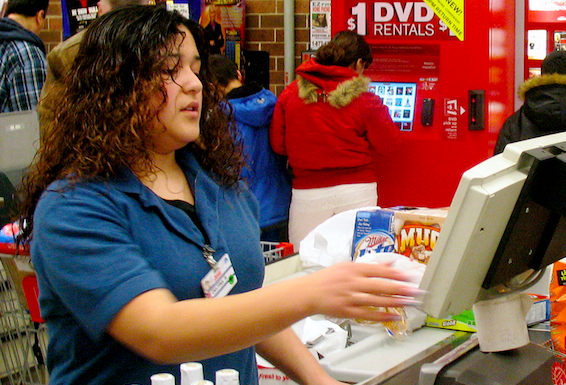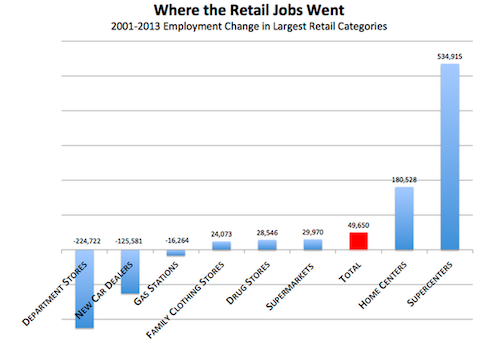Consumers’ Evolving Shopping Habits Mean There Aren’t As Many Jobs In Retail
Some days it’s hard to motivate yourself to go to the mall to shop, it’s just easier to shop online. We’ve all had those days, okay, maybe it’s just me, but still, tendencies like that are creating a problem of sorts for retail workers. The more efficient we’re becoming at buying our goods, the fewer retail workers are needed a new report shows.
Retail is constantly evolving, from shopping online to big box stores popping up in every town. But while those changes might seem great for consumers, they aren’t so welcome for retail workers, The Atlantic reports.
The retail industry added just 49,000 jobs between 2001 and 2013, meaning it really didn’t grow at all.
The Atlantic likens the rather stagnant growth in the retail sales workforce to two main causes: the Amazon Effect and the Walmart Effect.
One reason why shopping retail has become more efficient is that you can simply do it from your home. Instead of walking up and down aisles of the local department store, you can mark of each item on your shopping list with a quick click of the mouse. If consumers are shopping more online, there is less need for workers to be stocking shelves or working cash registers.
The Walmart Effect works similarly. Each employee at Walmart does the work of about 1.4 local retail workers, the Atlantic estimates. So, when a new supercenter opens a county will likely lose 150 jobs.
The most tell-tale sign that things have changed is the difference in job growth between retail outlets.
Department stores have lost more than 200,000 jobs this since 2000. Additionally, specialty stores, like book stores, computer stores and photo stores, have mostly disappeared from the retail landscape. Instead, big box stores have taken over, adding nearly 500,000 jobs.
The Sad, Slow Death of America’s Retail Workforce [The Atlantic]
Want more consumer news? Visit our parent organization, Consumer Reports, for the latest on scams, recalls, and other consumer issues.



